There is a lot of talk in Irish agriculture about using value-added products and effective marketing to increase financial returns to farmers.
There are many examples from infant formula in the dairy sector, to malting barley on tillage farms, to quality assurance schemes across farming sectors.
It takes significant investment to get these initiatives off the ground, and then there are the inevitable questions about how much of the extra value is actually passed back to farmers.
The hills of Donegal might not be the first place that you would expect to see an example of successful marketing that is delivering extra income for farmers.
Mules are a maternal breed of sheep that are bred by crossing a Blackface ewe to a Bluefaced Leicester ram
The Donegal Mule Group is a farmer-led initiative that was set up four years ago to create a higher-value market for sheep coming from upland areas in the county.

William and Padraic Gallen, and Kieran McGrath from the Donegal Mule Group.
Mules are a maternal breed of sheep that are bred by crossing a Blackface ewe to a Bluefaced Leicester ram.
Before the group was established in 2015, there was no dedicated sale for Mule sheep in Donegal. Around half of the group’s 40 current members were not previously breeding Mules and were instead producing mainly store lambs from Blackface ewes and terminal sires.
Of the farmers who were already breeding Mules, sheep were mainly sold at ordinary mart sales which always had the risk of the right customers not being present on the day.
Market
The Dongeal Mule Group aimed to create and supply a market for higher-value Mule ewe lambs, with the male lambs still either sold as stores or else finished on-farm.
“We are hoping to produce quality ewe lambs for the lowland farmers that are on better land than ours because we are mainly on the hills,” said Donegal Mule Group chair Kieran McGrath.
“The Mule sheep takes from both parents. Our members have different types of horned ewes; Lanark, Swaledale, Mayo and Perth Blackface. They are known for being hardy and good mothers.
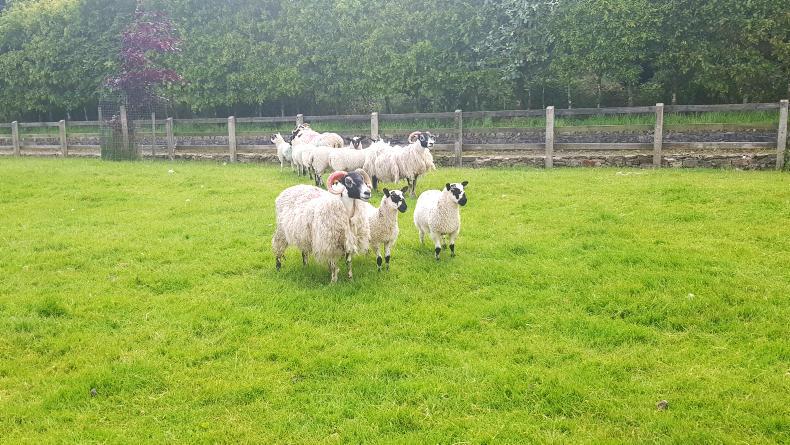
Mules are bred by crossing a Blackface ewe to a Bluefaced Leicester ram.
“Bringing the Bluefaced Leicester into it; they have great length, good wool, plenty of milk and are good mothers as well. You are hoping to have a fairly prolific breed in the Mule that will produce 1.7 to 2.0 lambs per ewe at ease.”
The Donegal Mule Group has an annual sale in Ballybofey and Stranorlar mart on the last Friday in August. At the first sale in 2015, there were 500 sheep presented for sale, but this had grown to 2,000 sheep by the fourth sale last year.
“We have local customers at the sale from within the county, but then we have people from as far away as Wexford in the southeast coast and Kerry in the southwest. We have a fairly broad spectrum of clients for our sheep at this stage,” Kieran said.
Promotion
Members of the Donegal Mule Group pay an annual fee, which covers costs associated with promoting the group at agricultural shows and other events across the country.
The group also has a significant online presence on social media and has invested in branded tags for sheep sold at the sale, as well as branded clothing for its farmer members.
A discounted rate at a local hotel has been negotiated for customers who are attending the sale from far away and the group also organises nationwide transportation of the sheep back to buyers’ farms.
We wanted to have it organised so that buyers could come to the sale by car instead of having to drive a jeep and trailer across the country
“Over the last four years, all sheep have been delivered to their customers within 48 hours.
“We wanted to have it organised so that buyers could come to the sale by car instead of having to drive a jeep and trailer across the country,” said the group’s vice-chair William Gallen.
“The main thing we want to do is produce sheep that are value for money. It’s about having repeat customers coming back each year,” he said.
Read more
Scottish 1,600 ewe flock opens its doors
Farmer Writes: keeping it simple with ewe lambs
There is a lot of talk in Irish agriculture about using value-added products and effective marketing to increase financial returns to farmers.
There are many examples from infant formula in the dairy sector, to malting barley on tillage farms, to quality assurance schemes across farming sectors.
It takes significant investment to get these initiatives off the ground, and then there are the inevitable questions about how much of the extra value is actually passed back to farmers.
The hills of Donegal might not be the first place that you would expect to see an example of successful marketing that is delivering extra income for farmers.
Mules are a maternal breed of sheep that are bred by crossing a Blackface ewe to a Bluefaced Leicester ram
The Donegal Mule Group is a farmer-led initiative that was set up four years ago to create a higher-value market for sheep coming from upland areas in the county.

William and Padraic Gallen, and Kieran McGrath from the Donegal Mule Group.
Mules are a maternal breed of sheep that are bred by crossing a Blackface ewe to a Bluefaced Leicester ram.
Before the group was established in 2015, there was no dedicated sale for Mule sheep in Donegal. Around half of the group’s 40 current members were not previously breeding Mules and were instead producing mainly store lambs from Blackface ewes and terminal sires.
Of the farmers who were already breeding Mules, sheep were mainly sold at ordinary mart sales which always had the risk of the right customers not being present on the day.
Market
The Dongeal Mule Group aimed to create and supply a market for higher-value Mule ewe lambs, with the male lambs still either sold as stores or else finished on-farm.
“We are hoping to produce quality ewe lambs for the lowland farmers that are on better land than ours because we are mainly on the hills,” said Donegal Mule Group chair Kieran McGrath.
“The Mule sheep takes from both parents. Our members have different types of horned ewes; Lanark, Swaledale, Mayo and Perth Blackface. They are known for being hardy and good mothers.

Mules are bred by crossing a Blackface ewe to a Bluefaced Leicester ram.
“Bringing the Bluefaced Leicester into it; they have great length, good wool, plenty of milk and are good mothers as well. You are hoping to have a fairly prolific breed in the Mule that will produce 1.7 to 2.0 lambs per ewe at ease.”
The Donegal Mule Group has an annual sale in Ballybofey and Stranorlar mart on the last Friday in August. At the first sale in 2015, there were 500 sheep presented for sale, but this had grown to 2,000 sheep by the fourth sale last year.
“We have local customers at the sale from within the county, but then we have people from as far away as Wexford in the southeast coast and Kerry in the southwest. We have a fairly broad spectrum of clients for our sheep at this stage,” Kieran said.
Promotion
Members of the Donegal Mule Group pay an annual fee, which covers costs associated with promoting the group at agricultural shows and other events across the country.
The group also has a significant online presence on social media and has invested in branded tags for sheep sold at the sale, as well as branded clothing for its farmer members.
A discounted rate at a local hotel has been negotiated for customers who are attending the sale from far away and the group also organises nationwide transportation of the sheep back to buyers’ farms.
We wanted to have it organised so that buyers could come to the sale by car instead of having to drive a jeep and trailer across the country
“Over the last four years, all sheep have been delivered to their customers within 48 hours.
“We wanted to have it organised so that buyers could come to the sale by car instead of having to drive a jeep and trailer across the country,” said the group’s vice-chair William Gallen.
“The main thing we want to do is produce sheep that are value for money. It’s about having repeat customers coming back each year,” he said.
Read more
Scottish 1,600 ewe flock opens its doors
Farmer Writes: keeping it simple with ewe lambs






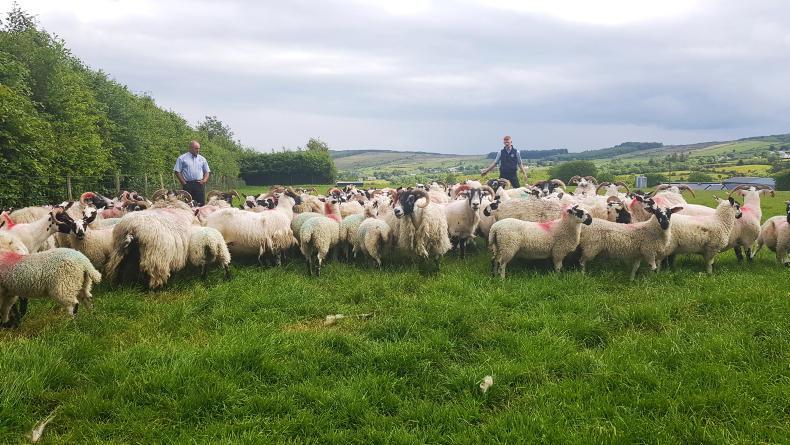
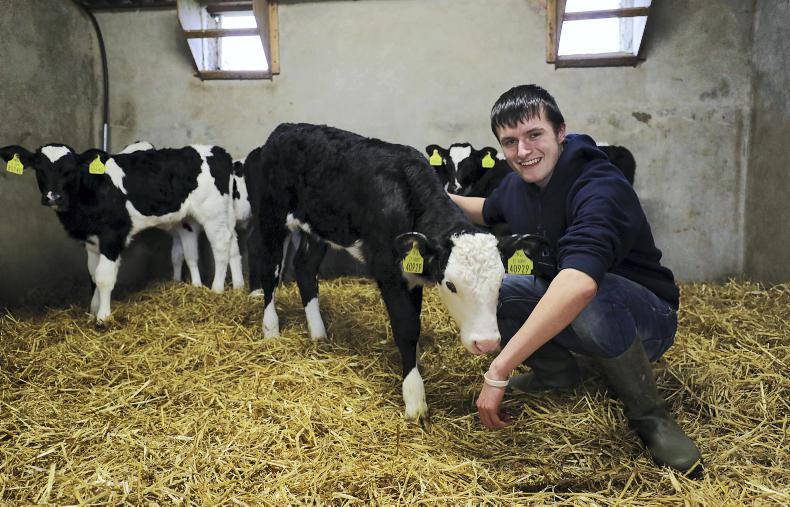
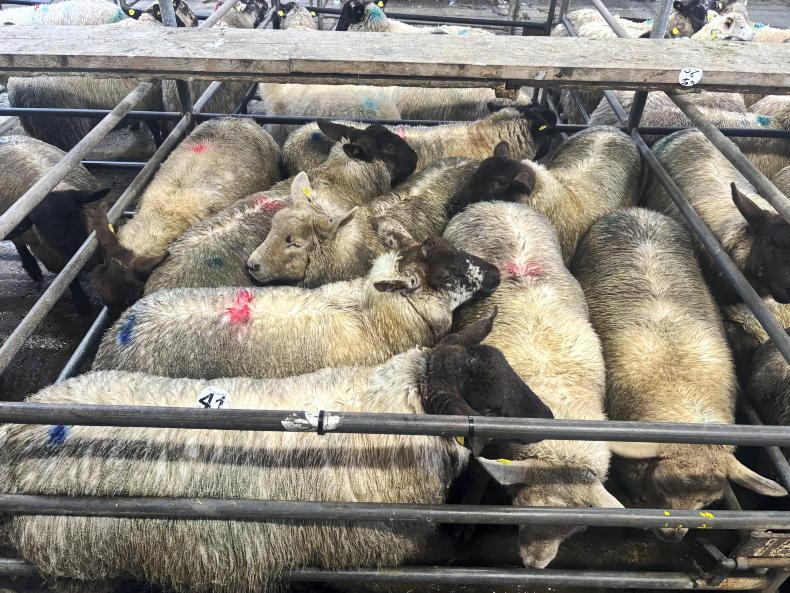
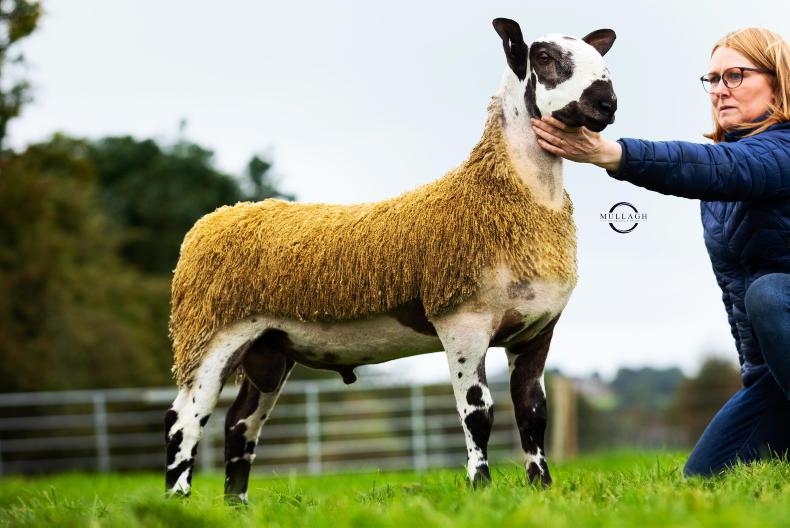
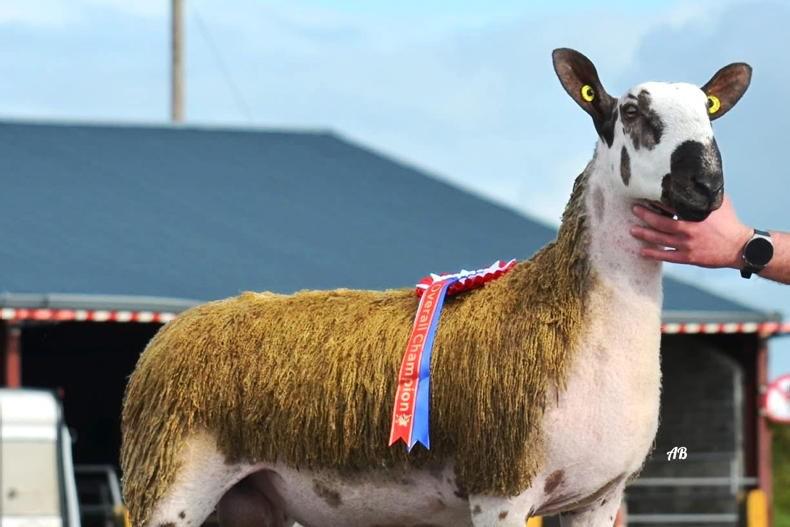
SHARING OPTIONS